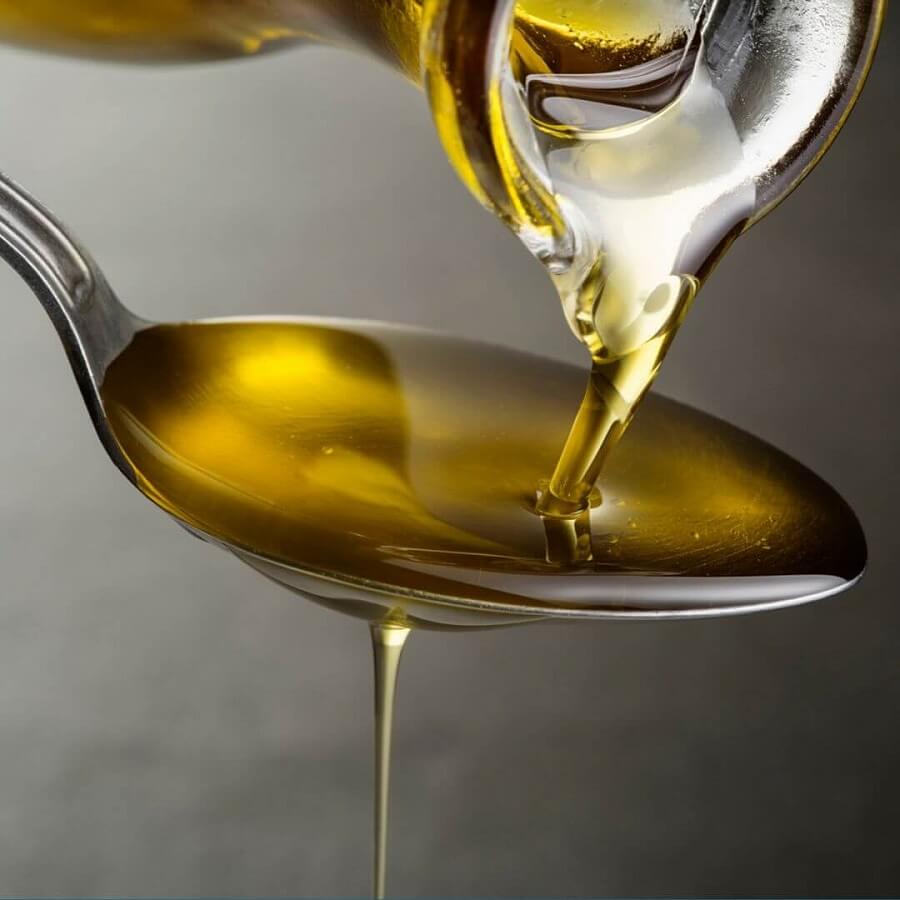You open up a bottle of olive oil you found on sale at your local discount store. You go to drizzle it on your salad and it smells strange. Do you still use it? Chances are that the oil may be rancid and could affect your health. There can be many negative health effects of rancid fat when it is a part of your diet on a regular basis. Learn how you can avoid this with my advice below!
Why does rancidity matter? Let's talk about the health effects of rancid fat in your diet.
Just the word "rancid" is enough to give you the chills. It brings up thoughts of a musty, stale odor. Rancidity happens when fat is exposed to heat, light, or oxygen over a period of time. The fat breaks down into smaller particles called fatty acids. This process eventually results in rancidity and creates a bad smell, changes in color, and the negative change called oxidation. Eating rancid fat may not make you sick over the short term, but consuming rancid fat over time can negatively affect your health. Even health promoting "healthy" fats will become "unhealthy" when rancid.
We don't want oxidation in our body. It's the flip side! We want plenty of ANTI-oxidation (think of fruits and vegetables). Oxidation results in free radical production. This can damage your body's cells, proteins, and DNA. Oxidation can speed up aging and increase your risk for many chronic conditions like heart disease, cancer, and a multitude of other inflammatory conditions.
What foods can become rancid?
Any food that contains fat is at risk of becoming rancid, however, the most problematic foods are any type of cooking oil, nuts, seeds, or salad dressings. Supplements that contain fat such as fish or flax seed oil capsules, and fat soluble vitamin supplements (Vitamins A, D, E, K) can also quickly go rancid.
6 Tips for Avoiding Rancidity
- Storage:
- Buy cooking oil in dark/opaque, glass containers instead of clear plastic.
- Store oil in a cool, dark place like a pantry or cupboard away from the stove (heat) and windows (light).
- Buy smaller quantities:
- As tempting as it is to buy large Costco sized bottles of oil, purchase only as much as you can use in 3 months time.
- To extend the shelf life, store specialty oils (like sesame, walnut, or macadamia nut oil) in the refrigerator once opened.
- Check dates:
- This applies not only to the expiration date, but also to how long it has been opened. If you take a peek in my fridge or pantry you'll see a written date on almost all items from the day I opened it. Keep a marker in a convenient location and adopt this habit.
- Just because a product isn't expired doesn't meen it's still fresh! Look for signs of rancidity (bad smell, discoloration, sticky residue near cap).
- Take caution with oil based supplements:
- Purchase fish oil from the refrigerated section whenever possible. Store it in the refrigerator even if it's not required.
- Periodically open a capsule to smell the oil. Since it is in capsule form, you'd never know if it smelled bad!
- Bulk Food Bins:
- Avoid buying nuts and seeds, wheat germ, coconut, nut flours, or ground flax seed from bulk food bins. The 3 caution signs for rancidity (heat, light, oxygen) are already oxidizing these products in the bulk bins before they even make it to your home!
- Choose the right oil for your cooking temperature:
- Different oils have different smoke points. This means they can only be heated to a maximum temperature before they start to oxidize or break down. Click here to find out How to Choose the Best Cooking Oil to Avoid Oxidation.
Fight oxidation with a diet high in Antioxidants!
Eat a rainbow of colors every, single day. Each pigment of color you see in plant foods has unique antioxidants.
Start your day adding 3/4 cup of berries to your breakfast. Snack on raw carrots, orange and red bell peppers, or cherry tomatoes. Include at least 1 1/2 cups of raw or cooked veggies with EVERY lunch and dinner. Get creative by roasting some asparagus, cauliflower, or sweet potatoes.
Instead of heavy cakes and cookies, opt for a dessert of fresh sliced peaches with a dollop of vanilla yogurt. Antioxidants are your natural medicine to take control of your health. This will help you to combat the health effects of rancid fat in your diet.
Did you like this blog? Check out some of my other posts:
Lower your Inflammation with Diet
5 Reasons You May Need Vitamin or Mineral Supplements
There is no "one size fits all" diet. Each person's individualized medical history and body dictates the right dietary approach. The above information will apply to the general population. YOUR dietary needs may not allow you to eat the suggested fruits or vegetables discussed above. Nutrition Dynamix takes pride in providing specialized medical nutrition therapy on an individualized basis. Contact me to learn more!


